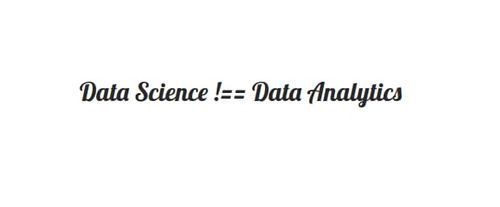Difference between Data Science and Data Analytics

Jenn К
author of all this stuff
Do you know that 90% of the world’s data has been created in the last two years? Today data is basically everywhere. Data has become an integral part of the tech world and you probably heard that in 2020 every human generated about 1,7 Mb of new information every second.
You sure know about Data Science and Data Analytics terms. But what do they mean? Are they something similar? Or are they absolutely different terms with different meanings? Let’s find out.
Start from the beginning. What do these terms even mean?
- Data Science
Data Science is the science of data analysis methods and models that aims to extract valuable information and knowledge from it. In other words, data science is a mix of statistics, calculations, development, and problem-solving processes. In this case, work is being done with both structured and unstructured data.
- Data Analytics
Simply put, data analytics is like a room in the house of data science. It’s more specific and concentrated. Data analytics is more focused instead on data science and not just searching the connections between data, but it is sorting through data to find something useful that can be used to help reach an organization’s goals.
When it comes to data science, the chief goals of the process are:
- Exploration of data analysis;
- Processing, cleansing, verified and integrity of data;
- Data trends identification and make predictions;
- Generation of insights using machine learning technologies.
When it comes to data analytics the main goals are next:
- Exploration of data analysis;
- Cleaning the dirty data;
- Discovering new patterns by using statistical tools;
- Developing KPI’s and visual representations of data.
So what are the main differences between data science and data analytics? Unlike data science, data analytics does not require the use of machine learning, artificial intelligence technologies and programming.
Tools and languages
Data Science: Python, SAS and SQL;
Data Analytics: R, Tableau Public, Apache Spark.
Field of application
Data Science
- Web research. Search engines use data science algorithms to offer the closest response to queries. And all this in a split second.
- Digital advertising. The great part of all marketing tools are based on data science. They allow you to increase the coefficient of clickability.
- Recommender systems. It exceedingly simplifies the relevant product search and improves the UX (user experience). Countless businesses use such platforms to advertise their products, guided by buyer requests. In this case, the recommendations are based on user search histories.
Data analytics
- Healthcare. Patience health monitoring via data management tools software. Such process automation may raise the work level performance.
- Tourism. Data analytics optimize the buying process. Analyze social platforms data and search history, tourism agencies provides the most suitable packages that meet the client's interests based on his income level.
- Gaming. Collecting and optimizing user information can be pretty useful and optimize play experience.
- Energy management. Control and constant monitoring of the device's network, dispatching crews, and operating in critical conditions - data analytics assists with everything.
What are the skills required?
Data scientist:
- In-deep knowledge in SAS and/or R;
- Python coding;
- Hadoop platform;
- SQL database/coding;
- Work with structured and unstructured data.
Data analyst:
- Programming skills;
- Statistical skills;
- Machine learning skills;
- Communication & data visualization skills;
- Data wrangling skills;
- Data intuition.

Jenn К
Author bio: author of all this stuff
